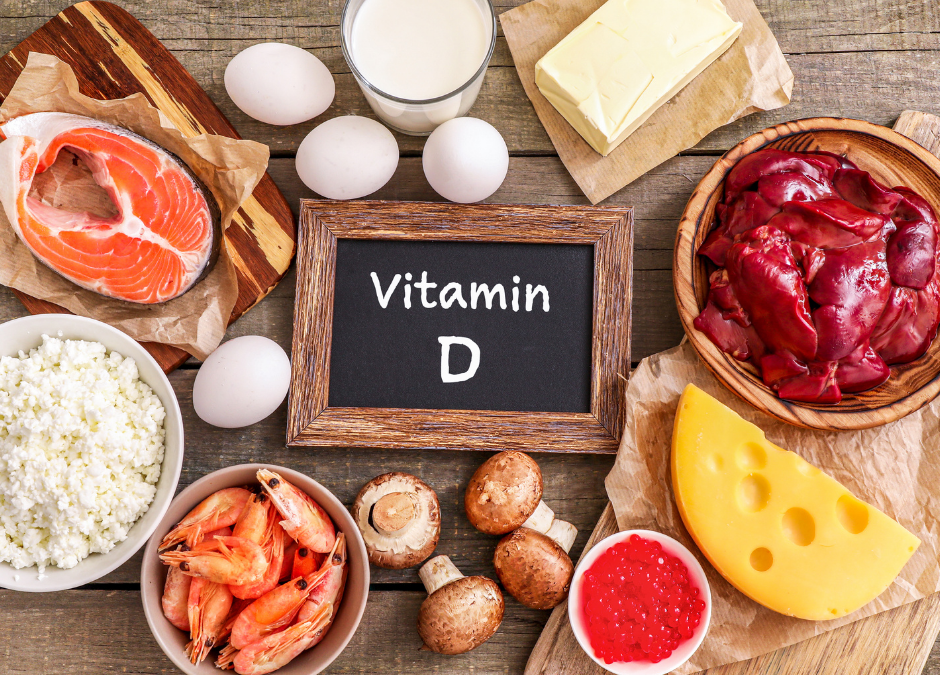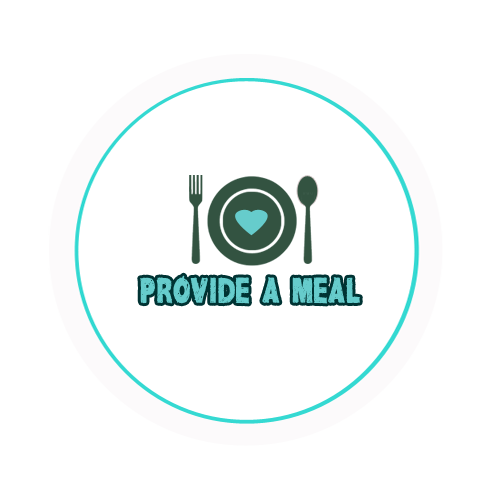
by lennie | Feb 23, 2022 | News
Palm oil is formed from the fruit of the African oil palm. It’s been a vital kind of oil for several millennia, however, over the past several decades, it’s become one of the most produced oils within the world. This {can be} because vegetable oil is extremely versatile — it’s semi-solid at temperature so it can be used as a variety, it’s immune to oxidation so it can make products last longer, and it can withstand high temperatures making it perfect for frying food.
The production of vegetable oil has led to deforestation and habitat destruction for orangutans, elephants, and rhinos. The problematic production of oil has gained widespread attention in recent years.
However, it’s not just the oil’s production that’s controversial, studies conflict on whether palm oil can provide health benefits.
Palm oil is rich in antioxidants, one of which is vitamin E. This vitamin is critical for keeping your immune system healthy and for helping your cells communicate. Studies show that getting enough vitamin e in your diet can reduce your risk of cardiovascular disease and certain forms of cancer.
Potential Health Benefits of palm oil:
Palm oil may be a great source of antioxidants, however, the identical aspects that make vegetable oil useful may sometimes cause complications for people with certain medical conditions.
Some of the health benefits that scientific studies currently support include:
Better Brain Health
The vitamin E found in vegetable oil has been connected to improved brain health. this way of E, referred to as tocotrienol, has been shown to shield brain tissue from dangerous free radicals more effectively than other antioxidants. In fact, one study showed that palm oil tocotrienols may even halt the progression of brain lesions. Yet, more studies are needed to further support these findings.
Promotes Heart Health
Certain studies appear to indicate that the vitamin e in vegetable oilcan also improve heart health. The antioxidant effects of fat-soluble vitamin found in oil seem to reduce or perhaps halt the progression of heart disease in some patients. While more studies must be done to replicate this effect, oil extract could also be useful for people fighting heart condition.
Potential Risks of Palm oil:
Because palm oil may be a dense source of nutrition, it’s going to have negative effects on some people. Consider the following before using oil in your cooking:
Increased Cholesterol Levels
While some studies suggest that palm oil decreases cholesterol levels, others suggest that it may raise “bad” cholesterol levels. These studies compared palm oil to other liquid oils likeolive oil, and generally found that palm oil performed worse than alternatives. One study found that palm oil increased cholesterol in healthy individuals.
Linked to Atherosclerosis
Fresh oil and older oil show significantly different levels of tocotrienol. due to this, reheated vegetable oil shows far fewer benefits than fresh vegetable oil. In fact, reheated oilmight not just lose the gutsbenefits of fresh oil, it’s going to actually increase your risk of heart diseaselike atherosclerosis. If you’rein danger for cardiovascular disease, avoid eating reheated palm oil or foods containing reheated palm oil.
High in Saturated Fats
Compared to other liquid oils, oilis comparatively high in saturated fats. palm oil is about 34% saturated fat, while olive oilis a smaller amount than half that. Saturated fats are linked to an increased risk of heart disease and chronic health conditions.
Download PROVIDE A MEAL app and feed someone today! 


by lennie | Feb 19, 2022 | Food Tips, Nutrition
Vitamin D is a fat-soluble vitamin in a family of compounds that includes vitamins D1, D2, and D3.
Your body produces vitamin D naturally when it’s directly exposed to sunlight. You can also get vitamin D from certain foods and supplements to ensure adequate levels of the vitamin in your blood.
Vitamin D has several important functions. Perhaps the most vital are regulating the absorption of calcium and phosphorus and facilitating normal immune system function.
Getting enough vitamin D is important for typical growth and development of bones and teeth, as well as improved resistance to certain diseases.
Here is more information about the benefits of vitamin D, plus information about downsides, how much you need, and foods with vitamin D.
1. Vitamin D may fight disease.
In addition to its primary benefits, research suggests that vitamin D may also play a role in:
- Reducing the risk of multiple sclerosis (MS). A 2018 review of population-based studies found that low levels of vitamin D are linked with an increased risk of MS.
- Decreasing the chance of heart disease. Low vitamin D levels have been linked to increased risk of heart diseases such as hypertension, heart failure, and stroke. But it’s unclear whether vitamin D deficiency contributes to heart disease or simply indicates poor health when you have a chronic condition.
- Reducing the likelihood of severe illnesses. Although studies are mixed, vitamin D may make severe flu and COVID-19 infections less likely. A recent review found that low vitamin D levels contribute to acute respiratory distress syndrome.
Supporting immune health. People who do not have adequate vitamin D levels might be at increased risk of infections and autoimmune diseases, such as rheumatoid arthritis, type 1 diabetes, and inflammatory bowel disease.
2. Vitamin D may regulate mood and reduce depression
Research has shown that vitamin D might play an important role in regulating mood and decreasing the risk of depression.
A review of 7,534 people found that those experiencing negative emotions who received vitamin D supplements noticed an improvement in symptoms. Vitamin D supplementation may help people with depression who also have a vitamin D deficiency.
Another study identified low vitamin D levels as a risk factor for more severe fibromyalgia symptoms, anxiety, and depression
3. Risks of getting too much vitamin D
If you take excessive amounts of vitamin D supplements, you may get too much of it. However, this is unlikely to happen through diet or sun exposure because your body regulates the amount of vitamin D produced through sun exposure.
Vitamin D toxicity can lead to an increase in your blood calcium levels. This can result in a variety of health issues, such as:
- nausea
- apathy
- vomiting
- abdominal pain
- dehydration
- confusion
- increased thirst
some food sources of vitamin:
Some foods contain vitamin D naturally, and others are fortified with it. You can find vitamin D in the following foods:
- salmon
- sardines
- herring
- canned tuna
- cod liver oil
- beef liver
- egg yolk
- shrimp
- regular mushrooms and those treated with ultraviolet light
- milk (fortified)
- certain cereals and oatmeals (fortified)
- yogurt (fortified)
- orange juice (fortified)
It can be hard to get enough vitamin D each day through sun exposure and food alone, so taking vitamin D supplements could help.
Download PROVIDE A MEAL app and feed someone today! 


by lennie | Feb 14, 2022 | Nutrition
Mushrooms are well known for his or her high-quality flavor and incredible fitness benefits. Packed with a ton of vital nutrients and minerals, they make for an super addition on your diet, including taste to many exceptional recipes. Crimini mushrooms are one of the maximum extensively used mushroom varieties, famous in kitchens across the world. Many don’t recognize that mushrooms, consisting of crimini mushrooms, are sincerely a sort of fungus. They’re local to North America and Europe and are recognized for his or her sensitive taste and meaty texture. Health Benefits Mushrooms are a low-calorie meals that packs a dietary punch. Loaded with many fitness-boosting nutrients, minerals, and antioxidants, they’ve lengthy been diagnosed as an vital a part of any diet. For instance, mushrooms raised with publicity to ultraviolet mild are a great supply of Vitamin D, an vital thing in bone and immune fitness. Crimini mushrooms are a in particular super supply of zinc, an vital hint element. Zinc is a important nutrient for the immune device and is likewise wanted for making sure top of the line boom in babies and children. Moreover, researchers have located some of different super motives for incorporating mushrooms into your diet, inclusive of:
Lower Blood Pressure – Mushrooms are wealthy reassets of potassium, a nutrient recognized for decreasing the bad effect that sodium could have in your body. Potassium additionally lessens the anxiety in blood vessels, probably assisting to decrease blood pressure. Boost Immune System The anti inflammatory impact of mushrooms has been proven to substantially enhance the performance of the immune device. Research has located that mushrooms assist stimulate microphages withinside the immune device, improving its capacity to defeat overseas our bodies and making you much less liable to critical illnesses.
Nutrition -Mushrooms are a wealthy, low calorie supply of fiber, protein, and antioxidants. They may additionally mitigate the danger of growing critical fitness conditions, inclusive of Alzheimer’s, coronary heart disease, cancer, and diabetes. They’re additionally high-quality reassets of:
Selenium
Copper
Thiamin
Magnesium
Phosphorous
Weight Loss – Long and short-time period research alike have located that mushrooms, in mixture with exercising and different way of life changes, could have an vital effect on weight loss. For example, after being requested to alternative 20 percentage in their red meat intake with mushrooms, studies members confirmed upgrades of their BMI and stomach circumference. The antioxidants in mushrooms also are notion to lessen the danger of high blood pressure and different metabolic disorders.
Download PROVIDE A MEAL app and feed someone today! 


by lennie | Feb 8, 2022 | Food Tips
Delicious foods that help you diet? It sounds too good to be true.No doubt: Weight loss comes down to simple math. You have to eat fewer calories than you burn.”Certain foods can help you shed body weight,” says Heather Mangieri, RD, a spokeswoman for the Academy of Nutrition and Dietetics, “because they help you feel full longer and help curb cravings.” Some even kick up your metabolism. So take this list when you go to the supermarket:Dark chocolate, sausage, nuts, and eggs? They’re all on the list. It’s about feeling full and satisfied.
1. Beans
Inexpensive, filling, and versatile, beans are a great source of protein. Beans are also high in fiber and slow to digest. That means you feel full longer, which may stop you from eating more.
2. Soup
Start a meal with a cup of soup, and you may end up eating less. It doesn’t matter if the soup is chunky or pureed, as long as it’s broth-based. You want to keep the soup to 100 to 150 calories a serving. So skip the dollops of cream and butter.
3. Dark Chocolate
Want to enjoy chocolate between meals? Pick a square or two of dark over the milky version. In one study, chocolate lovers who were given dark chocolate ate 15% less pizza a few hours later than those who had eaten milk chocolate.
4. Pureed Vegetables
You can add more veggies to your diet, enjoy your “cheat” foods, and cut back on the calories you’re eating, all at the same time. When Penn State researchers added pureed cauliflower and zucchini to mac and cheese, people seemed to like the dish just as much. But they ate 200 to 350 fewer calories. Those healthy vegetables added low-cal bulk to the tasty dish.
5. Nuts
For a great snack on the run, take a small handful of almonds, peanuts, walnuts, or pecans. Research shows that when people munch on nuts, they automatically eat less at later meals.
6. Apples
Skip the apple juice and the applesauce and opt instead for a crunchy apple. Whole fruit blunts appetite in a way that fruit juices and sauces don’t.
One reason is that raw fruit has more fiber. Plus, chewing sends signals to your brain that you’ve eaten something substantial.
7. Yogurt
Whether you prefer Greek or traditional, yogurt can be good for your waistline.
A Harvard study followed more than 120,000 people for a decade or longer. Yogurt, of all the foods that were tracked, was most closely linked to weight loss.
That doesn’t prove that yogurt caused weight loss, but it stood out among other foods.
8. Grapefruit
Yes, grapefruit really can help you shed pounds, especially if you are at risk for diabetes.
Researchers at Scripps Clinic in San Diego found that when obese people ate half a grapefruit before each meal, they dropped an average of 3 ½ pounds over 12 weeks. Drinking grapefruit juice had the same results.But grapefruit juice doesn’t have any proven “fat-burning” properties — it may just have helped people feel full.Be careful: You cannot have grapefruit or grapefruit juice if you are on certain medications, so check the label on all your prescriptions, or ask your pharmacist or doctor.
Shop Smart
Load your shopping cart with lots of lean protein, fresh veggies, fruit, and whole grains, says food scientist Joy Dubost, PhD, RD. The most important thing, when it comes to lasting weight loss, is the big picture of what you eat, not specific foods.
Finally eating three meals a day vs. snacking all day is easier to lose weight because you can stop fixating on food. When thoughts of food constantly enter your mind, you want to eat more of it. Live your life between meals, and allow yourself to not be constantly nagged by the pantry to come back for more!
Download PROVIDE A MEAL app and feed someone today! 


by lennie | Feb 4, 2022 | News, Uncategorized
We all know that it is always important to nourish your body with clean, organic and unprocessed foods, however during times of spiritual growth or awakening (Spiritual awakening is a term given to describe a subjective experience in which an individual’s ego transcends their ordinary, finite sense of self to encompass a wider, infinite sense of truth or reality.) it is even more important that your body is nourished with foods to support your changing vibration. Eating certain foods are also important during times of change, times of awakening and times of high emotional stress.
As your vibration level moves up in frequency, it can cause your energy to feel displaced, shaky or even unstable. You may even start experiencing bodily sensations, vivid dreams or feel sensitive towards others. During this time, it is important that you nourish your body with foods that are going to not only support you through this process but also support your pineal gland.
The pineal gland is the “seat of consciousness” and is often referred to as the third eye. It is responsible for our dreams, visions and being able to connect us with our higher purpose or source energy. The Pineal Gland has other functions in the body too, however from a more spiritual or esoteric approach, the pineal glad is truly how we awaken into our own consciousness and raise our vibration.
If you are looking to support or enhance your intuition, refocus your energy or need some help with ascension symptoms, here are 5 foods that will help support you:
1. Cold pressed Extra Virgin Olive or Coconut Oil
Healthy fats like those found in olive and coconut oil not only support brain and nervous system function but they also help us to expand our intuition. Often when you first come into your awakening, you may feel anxious or even depressed as you try to adjust to the changes. Eating a diet rich in these fats can help to calm you and keep you balanced through the process.
These fats are also stabilising and will help you to connect with Mother Earth. They can also increase your intuitive connection with nature.
2. Raw Cacao
Cacao is not only high in nutrients and antioxidants but it is also believed to help support the functioning of the pineal gland and enhance your intuition. Raw cacao is also a potent detoxifier and can help shift toxic energy out of your body and aura. It is also highly energizing and can help to stabilise energy levels throughout the day. Cacao can also help to elevate your mood and help you to calm the thoughts in your mind, making it perfect for meditation or mindfulness practices.
3. Beets
Beets help to detox the body of heavy metals and can assist in the cleansing of the pineal gland. Beets are also very grounding and can help you to feel more centered and balanced, especially if you are suffering from ascension symptoms or just feeling ‘out of touch’ with reality.
They can also help you to stay spiritually and emotionally strong around people who may be draining or when you are feeling sensitive to energy.
4. Herbs
There are so many wonderful herbs that support ascension, intuition and awakening. Fresh herbs and herbal teas have such a strong and powerful vibration themselves, so use your intuition to guide you to the right herb at the right time. Herbs can help you to expand your consciousness, heal your body, enhance your psychic abilities and raise the frequency of your vibration. In fact, herbs are amazing at helping you to move through into a higher level of consciousness.
Certain herbs can also help you deal with ascension symptoms and the opening of the chakras. You can read more about this here.
5. Water
Staying hydrated is always important, but during times of ascension it is crucial. Water helps you to detox negative energy and emotions out of your body and also helps to clear toxins.
During times of spiritual growth sometimes the pains and wounds of the past are also uncovered in order to be released. Staying hydrated can help release some of these emotions and can aid in the letting go process.
Staying hydrated also supports the functioning of your brain which in turn, supports the health of the pineal gland and your nervous system.
Water also helps to keep the energy moving throughout your body and can help keep your energy levels up.
Download PROVIDE A MEAL app and feed someone today! 


![]()
![]()







